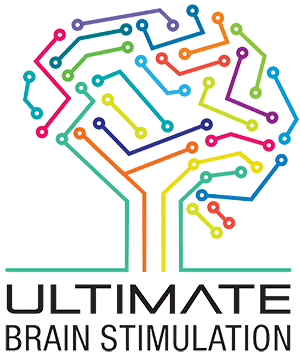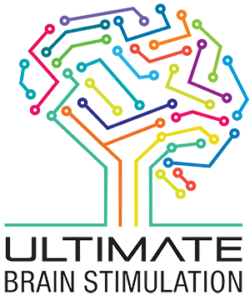Depression
- Home
- Depression
Depression is a common, complex mood disorder that affects how you think, feel, behave and handle any aspect of life. Recognizing the symptoms and seeking appropriate help is crucial. A combination of therapy, medication, lifestyle changes, and support can lead to significant improvement. It is important to seek professional help immediately, especially if there are thoughts of self-harm or suicide. Early identification of depression, its causes, symptoms, and treatment options is crucial for managing the condition
Depression masquerades in various forms affecting all age groups and all the body organs. The symptoms may be very vague, remote and non-specific. Depression affects any body function. Depression is a great leveller. Depression symptoms become chronic ranging from chronic fatigue, sleep problems, body pains to diabetes, heart attack and everything in between. • Loss of interest in activities that were of interest earlier, loss of appetite, feelings of worthlessness, Migraine & Headaches sad feelings are the hall mark of depression.
Causes of Depression
Biological Factors:
- Brain chemistry: Imbalances in neurotransmitters such as serotonin and dopamine.
- Hormonal changes: Conditions like thyroid problems or menopause.
- Genetics: A family history of depression can increase the risk.
Psychological Factors:
- Low self-esteem or being overly self-critical.
- Traumatic or stressful events, such as the death of a loved one or financial difficulties.
Environmental Factors:
Exposure to violence, neglect, abuse, or poverty.
Symptoms of Depression
Emotional Symptoms:
- Persistent sadness, emptiness, or hopelessness.
- Loss of interest or pleasure in most activities.
- Feelings of worthlessness or excessive guilt.
- Thoughts of death or suicide.
Physical Symptoms:
- Fatigue or lack of energy.
- Changes in appetite (weight loss or gain).
- Sleep disturbances (insomnia or oversleeping).
- Physical aches and pains without a clear cause.
Cognitive Symptoms:
- Difficulty concentrating, remembering, or making decisions.
- Slowed thinking, speaking, or body movements.
Types of Depression
Major Depressive Disorder (MDD):
Characterized by a persistent feeling of sadness or a lack of interest in external stimuli, affecting daily functioning.
Persistent Depressive Disorder (Dysthymia):
A chronic form of depression with symptoms lasting for at least two years.
Bipolar Disorder:
Includes episodes of depression alternating with episodes of mania or hypomania.
Seasonal Affective Disorder (SAD):
Depression related to changes in seasons, typically starting in the fall and continuing into the winter months.
Postpartum Depression:
A severe form of depression that occurs after childbirth.
Treatment Options for Depression
Medications:
- Antidepressants: SSRIs, SNRIs, tricyclics, and MAOIs.
- Medication effectiveness varies, and it may take time to find the right one.
Neuromodulation:
Where medications are ineffective and the condition becomes prolonged, the alternate mode of treatment is Neuromodulation. The standard method of Neuromodulation for depression is rTMS (Repetitive Transcranial Magnetic Stimulation). rTMS is FDA approved procedure for depression. Similar, easily available mode of Neuromodulation is Transcranial Direct Stimulation (TDCS) . Both the methods have been proven safe.
Lifestyle Changes:
- Regular exercise: Increases endorphins and improves mood.
- Healthy diet: Nutrient-rich foods can affect mood positively.
- Adequate sleep: Helps in managing symptoms and improving overall health.
Mindfulness and Relaxation Techniques:
Meditation, yoga, and deep breathing exercises can reduce stress and improve mood.
Psychotherapy:
- Cognitive Behavioral Therapy (CBT): Helps in changing negative thought patterns.
- Interpersonal Therapy (IPT): Focuses on improving interpersonal relationships.
- Psychodynamic Therapy: Addresses unconscious patterns and past experiences.
Social Support:
Connecting with friends, family, or support groups.
Hospitalization or Residential Treatment:
In severe cases, hospitalization may be necessary for intensive treatment.
Stress, Anxiety and Depression
Stress, Anxiety, Depression is the way the disease progresses. What starts as stress, evolves to become anxiety and depression of varying degree. In view of the mild nature of the symptoms and serious implications to life, early identification and intervention by those important ‘near and dear’ are vital to stop further progression.
Sleep disturbances
Sleep disturbances lead to irritability, depression and anxiety, fatigue and poor attention. Sleep disturbances can be:
- Difficulty falling sleep: Inability to fall asleep easily or staying up awake very late.
- Waking up and not being able to sleep again.
- Restless sleep: Keep moving around in sleep.
- Interrupted sleep: Waking up multiple times during the night. They feel tired.
- Non restorative sleep: Heavy sleepers not feeling rested or mentally or restored. But they fall back to sleep quickly.


